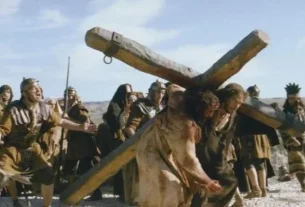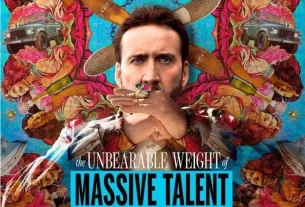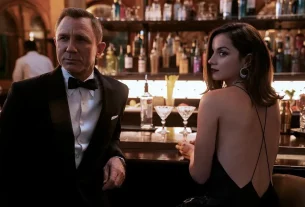Eschewing the typical thrills for a more wordy, philosophical take on the genre, this true-life gangster film backs its brawn with brains.
Marco Bellochio’s historical crime epic The Traitor opens at a Cosa Nostra party in Sicily, senior criminals wandering lavish grounds, greeting each other with smiles that barely conceal rivalries, poison and murder behind their eyes. So far, so mafia movie. Yet, The Traitor doesn’t spend too long in this arguably over-familiar territory. Instead, it balances its gangster tropes (corruption, car bombings, conspicuously luxurious stints in prison) with a more personal tale of one man trying to save his own self-image, and perhaps his soul, in the process.
This man is Tommaso Buscetta (Pierfrancesco Favino), the first member of the Cosa Nostra to break his organisation’s codes of silence and testify against his fellow high-ranking mafiosos. Having built a life in Brazil, away from the violent politics of the mob (most of the people we meet in the first scene die brutally before the half hour mark), Tommaso is forced back to Italy in 1984 after his old boss has his sons murdered and the authorities threaten to throw his wife out of a helicopter.
The depositions and trials that follow form the bulk of the drama, ideological conflicts that prove just as compelling as any shootout or assassination. With the Italian state trying to put away all the Cosa Nostra bigshots at once, the courtroom scenes are amusingly chaotic, twenty or so characters at a time trying to say their piece. Every performance is fantastic and, crucially, distinctive – you never lose track of who is talking or what their agenda is, even if a dozen other voices are attempting to drown them out.
Favino has no easy task to stand out as the lead amongst a very powerful ensemble, but he manages it with a performance that’s as intelligent as it is muscular. He imbues Tommaso with a truly commanding aura in group scenes, and dives deep into his unique worldview in smaller, quieter moments. Tommaso’s self-aggrandising but strict moral code informs his every action and word, or at least he thinks it does, and considered writing and acting make him in to a fascinating protagonist.
Running at two and a half hours with not much action to speak of, The Traitor could have been a bit of a chore, but Bellochio keeps the pace up with witty dialogue, snappy editing, and some arresting visuals made up of dark, rich colours and immersive deep focus. A couple of the stylistic quirks invite too many comparisons to superior mafia films, and we could have really done without the occasional stock footage of literal rats, but haunting dream sequences add a welcome ambition and flair.
Bellochio also does a great job of not glorifying the mob, a stumbling point for a lot of ostensibly “anti-mafia” films. As the indicted capos bulge their eyes and yell from their cages, they look utterly defeated; pathetic and stupid men who are nothing without their power to threaten violence. Even their lawyers end up making fools of themselves. In dedicating the majority of its runtime to events that most gangster films leave as an epilogue, The Traitor shows off the ultimate emptiness of a life of crime.



